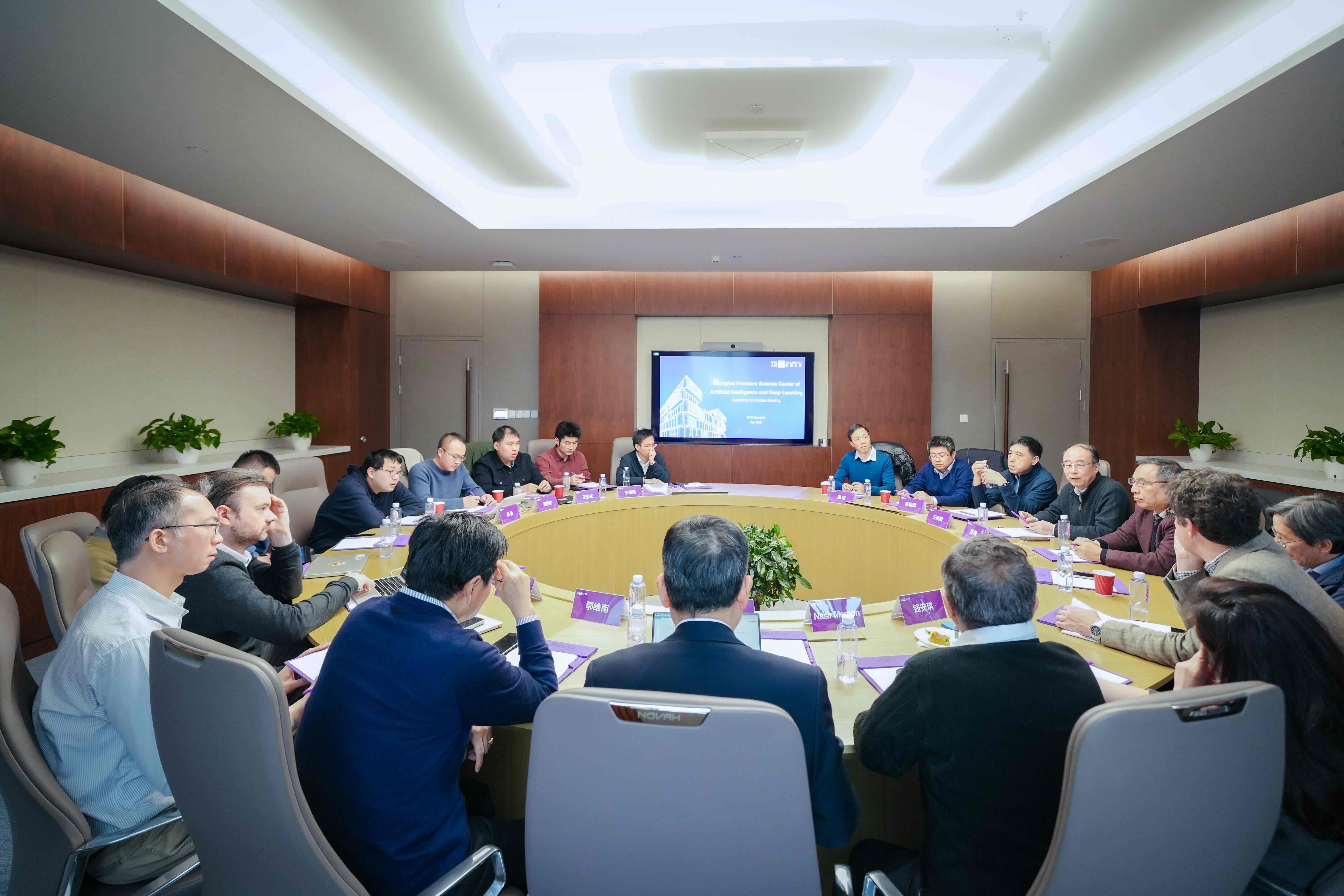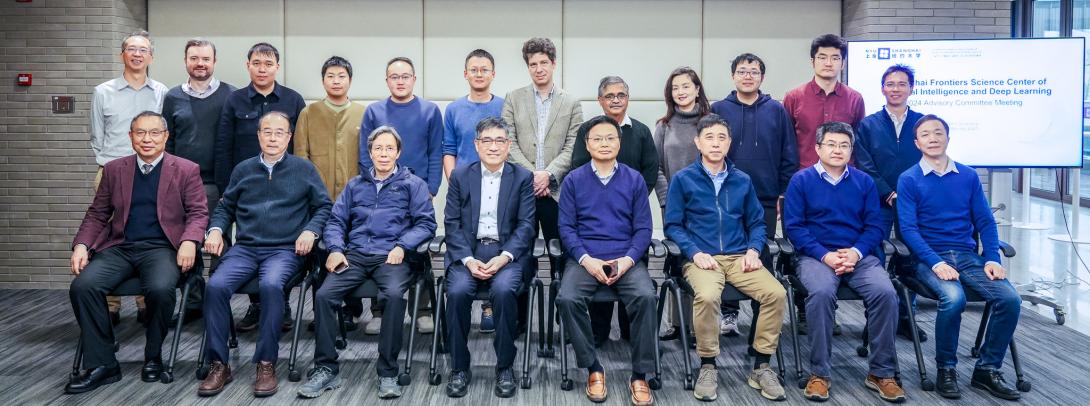On February 15, the Shanghai Frontiers Science Center of Artificial Intelligence and Deep Learning at NYU Shanghai convened its Second Academic Committee Meeting. The event brought together faculty, researchers, and advisory committee members to review the center’s progress, discuss ongoing research, and shape its strategic direction for the coming years.
Chancellor Tong Shijun welcomed attendees and expressed gratitude for the committee’s ongoing support to the center. He emphasized the growing global focus on artificial intelligence (AI) and acknowledged the center’s contributions to AI research and education. “I’m very grateful for the work done by my colleagues at this center,” he said. “Their work makes it possible for us to say that NYU Shanghai is not lagging behind in this great AI trend, and to tell both domestic and international audiences that we at NYU Shanghai provide advanced AI education not only to our students but also to the broader community.”
Following the welcome remarks, Interim Dean of Computer Science, Data Science, and Engineering Professor Nasir Memon provided an overview of the center’s achievements since its launch in 2023. He acknowledged the valuable feedback received from the advisory committee at last year’s annual meeting and explained how these insights helped refine the center’s research focus and shape its long-term vision.
With three core research pillars—AI and Deep Learning Algorithms, Mathematical Foundations of Machine Learning, and AI for Scientific and Engineering Solutions—the center has secured new grants, expanded its faculty and student pool, deepened cross-campus partnerships, and held a series of academic events.
A standout initiative in cross-campus international collaboration highlighted by Memon was December 2024’s Serendipity Research Confluence, where 42 researchers from NYU’s New York, Abu Dhabi, and Shanghai campuses convened at NYU Abu Dhabi to brainstorm interdisciplinary projects. The event resulted in seven new research projects, each receiving seed funding, leveraging NYU’s global network for innovation and partnership.
Looking ahead, Memon outlined plans to prioritize “Human-AI Interface towards Socially Sensible AI” and launch the AI for Education (AIE) initiative, which aims to establish an open global AI education testbed with research kits.
The meeting also featured presentations from three faculty members, each representing one of the center’s core research directions. Assistant Professor of Computer Science Chen Zhao shared the work of the AI and Deep Learning group, which focuses on trustworthy foundation models (FMs). Their research seeks to enhance understanding of FMs and explore their interdisciplinary applications, particularly in finance and healthcare. Assistant Professor of Data Science Ling Shuyang presented on the mathematical foundations of AI. His research group aims to develop theoretical frameworks for deep learning and enhance the interpretability of AI systems. Professor of Chemistry John Zhang discussed research in the AI for Science direction, demonstrating how AI and machine learning techniques can help address complex challenges in chemistry.

During the advisory committee discussion, experts commended the center’s progress over the past year and expressed strong support for the AI for AI Education initiative. They emphasized the importance of strengthening research collaborations, particularly with local Shanghai universities and international institutions. Other key recommendations included continuing to attract top AI researchers, further refining the center’s research focus, and ensuring that students have direct access to cutting-edge AI research.
Advisory Committee Chair E Weinan concluded the meeting with a summary of the discussions, recognizing the center’s achievements and the substantive academic programs it has launched over the past year. He highlighted the importance of maintaining NYU Shanghai’s unique position as a bridge for international collaborations in AI research. Looking ahead, he emphasized the need for more interdisciplinary AI applications, increased funding support, and a focus on producing high-impact research that will set the center apart on the global stage.


